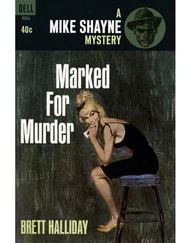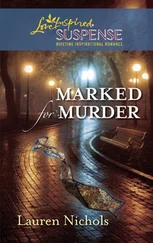“The prosecution’s case seems to center on the fact that Dick wears the same kind of clothing we do—and which the murderer is supposed to have worn. And that Dick drives the same make and color of car the murderer did. And that Dick carries a knife. And that he fell into the trap they set for the murderer.
“Oh, and there’s something about his belt . . . but they didn’t bring that up. Inspector Koznicki said that the prosecution doesn’t usually play all its cards at a preliminary examination. They present just enough to have the judge agree that there is ‘probable cause’ to hold the defendant over for trial.
“Which is just what happened.”
“Well, I know I wasn’t there . . .but to me their case seems pretty flimsy.”
“I’ve got to say that the prosecution did better than I portrayed it’s doing. That prosecuting attorney is really good. I suppose to someone who could be objective about this, it could be and probably is one of the more fascinating trials in memory. But you and I don’t fit into that objective category.”
“Most certainly not.”
“On top of it all, the prosecution didn’t bring in those eyewitnesses who identified Dick. And the inspector says their testimony may prove to be the most damaging evidence of all. But even without them, the ruling was that Dick was to be held over for trial in circuit court.”
“That’s the one that puzzles me. How could they do that? How could they possibly identify Dick—I mean, when the man certainly wasn’t there?”
“Dick’s attorney told him it does happen. Even when the police don’t influence them, sometimes witnesses so expect to see a particular person in a lineup that they find somebody to identify even if the guilty party isn’t there.
“Anyway, Dick said his attorney was quite sure he would be able to break their testimony in cross-examination.”
“I fervently hope and pray so.”
“Interesting, though; through the inspector, I met a young detective named Mangiapane.”
“A good Italian Catholic lad?”
“Absolutely. He was at the lineup. He told me all about the proceedings and—off the record, unfortunately—that he thought it was possible, just possible, that the women could have made a mistake. I think he’s on our side.”
“We can use all the help we can get.”
“You said it. Especially with that Lieutenant Tully. He is so dead sure that Dick is guilty that it’s frightening. And the inspector claims that Tully is the best homicide detective on the force.”
“Everybody’s entitled to one major mistake. And this is Lieutenant Tully’s. So . . .” Meehan tapped his cane against the floor. “. . . what happens now? How do we get poor Dick out of that godforsaken jail?”
“Well, he has to go to trial first.”
“Before that. Isn’t there a bail?”
“Yes. As a matter of fact there is . . . although the prosecution argued strenuously against it.”
“They want their pound of flesh, do they?”
“They argued that Dick is charged with a most serious crime and that he poses a danger to the community.”
“Horsefeathers!” Which was about as vulgar as Monsignor Meehan ever became.
“That’s what the defense said: that Dick has an unblemished record and is an upstanding and, in fact, leading member of the community.
“So then the judge said that while the prosecution had met its burden to prove probable cause, he didn’t believe the evidence was compelling enough to prohibit setting a bond.”
Meehan grinned. “I bet then they wished they’d trotted out all their ‘evidence.’”
“Probably. But there really wasn’t anything more they could do at that point. So the bond was set at . . .” Koesler paused as if unwilling to pronounce the figure. “. . . at one hundred thousand dollars.”
Meehan dropped his cane. “One hundred thousand dollars!”
“That means coming up with 10 percent of that total—ten thousand dollars.”
“Ten thousand? Cold cash? Who’s got that kind of money?”
“Nobody I know. The priests have started a collection with the idea that if the total never gets to ten thousand, whatever has been donated will be returned. There’s not a lot of hope. At least not in the immediate future. And the chancery does not involve itself in such matters.”
“Meanwhile, poor Father Kramer rots in jail for no good reason.” Meehan shook his head. Then, as if forcing himself, he brightened. “Well, anyway, Bobby, we’ve got you on our side.”
Koesler tilted his head to one side. “What do you mean?”
“I did a little callin’ around myself. And I talked to Sister Therese.”
“Oh.”
“She told me you were going to help Dick.”
“I’m praying for him.”
“That and more. She said you were going to get involved.”
“Getting involved doesn’t mean any miracles are going to happen.”
“You’ve done it before, Bobby.”
“Miracles!”
“Maybe not. But you’ve helped the police before. It’s common knowledge.”
“I don’t know how common the knowledge is. But you’ve got the right verb. I’ve helped a few times. And I’m only involving myself in this case because the murderer had the gall to wear our uniform when he was committing his crimes. You and I—and all priests, for that matter—know that no one knows what it’s like to be a priest except another priest. So if this murderer wants to pretend to be a priest, like as not he’s going to make some mistakes that a real priest will be able to recognize.
“I guess my advantage over any other priest who might get actively involved in helping Dick is that I already have a bit of an entree to the police department through Inspector Koznicki. But please, Monsignor: no miracles.”
Meehan chuckled. “All right then, Bobby: no miracles. But we’re counting on you all the same.”
Koesler grew more serious. “I just wish I had more confidence. I feel that I’m limping.”
“Oh?” Meehan matched Koesler’s somber demeanor. “What is it then?”
“I don’t know exactly. It’s . . . it’s like the real killer knows Dick better than I do.”
“How can that be?”
“Well, quite obviously, the real murderer has been stalking Father Kramer for some time—and very painstakingly. He knows Dick’s routine better than almost anyone else.” Koesler would not mention Kramer’s drinking problem and his consequent lost Sundays. He did not consider Kramer’s confidence protected by the seal of confession, or even as a professional secret. But there was no point in mentioning it to others. Time enough to address that problem after Kramer was cleared of these charges.
“He knows,” Koesler continued, “what kind of car Dick drives, that he habitually carries a knife, what his schedule is. Even what size belt he wears.”
“He knows that much! He knows all that!”
“Yes. And I know so little. Outside of that visit I paid him—after you mentioned it would be a good idea—I rarely see him. We don’t travel in the same circles. Matter of fact, he doesn’t travel in any circles. A loner, now and even in the seminary.
“Dick was only a couple of years behind me in the seminary. But I—we—hardly ever saw him. Always working—studying, reading, busy in the boiler room, the machine shop, with the carpenter— always working.
“And it hasn’t changed since ordination. None of us ever sees him. Why, when I visited him this latest time, he was busy in his workshop. And if he hadn’t been there, he would have been out in his parish ringing doorbells or in the school or repairing the church or something like that.
“The problem, Monsignor, is that the real killer knows him and I don’t. That’s why I feel as if I’m limping. If I’m going to be able to find out where the killer made his mistake, the one that will trip him up and expose him, I’ve got to know Dick at least as well as the killer does.” He shook his head. “But I don’t.”
Читать дальше












